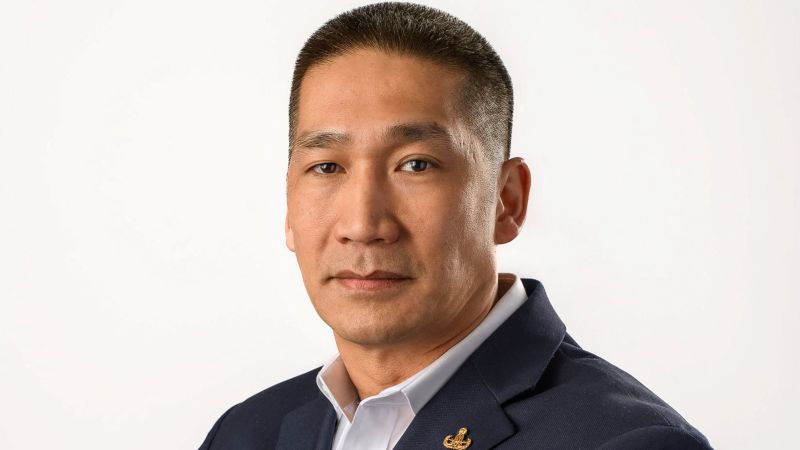CNN
—
Navy veteran Hung Cao, a Republican who lost a closer-than-expected race for a US House seat in Virginia last year, formally announced a challenge to Democratic Sen. Tim Kaine on Tuesday.
“We are losing our country,” Cao said in an announcement video. “I still believe America can be the land of opportunity. I have an obligation to fight back against those who want to control our lives and disrupt our families. We need real fighters, not politicians, not bureaucrats, not keyboard warriors acting tough in a custom-made suit.”
Cao ran against Democratic Rep. Jennifer Wexton last fall in Virginia’s blue-leaning 10th Congressional District, anchored in the suburbs of Washington, DC. He lost by 6 points in a redrawn seat that Joe Biden would have won by 18 points in 2020.
Kaine, the 2016 Democratic nominee for vice president, starts out as the favorite to win a third term next year in a state where Republicans have not won a Senate race since 2002. His long political career has included previous stints as Virginia governor and lieutenant governor and the mayor of Richmond.
A retired Navy captain, Cao immigrated to the United States with his family as a refugee from Vietnam in 1975, according to his campaign website. He attended the United States Naval Academy and served in Iraq, Afghanistan and Somalia. If elected to the Senate, Cao would be the first Vietnamese American senator.
Cao established himself on the trail last year as an opponent of gun control and abortion rights. He also focused on education issues, speaking out against classroom instruction on critical race theory and pandemic restrictions in schools, including mask mandates – issues Republican Glenn Younkin campaigned on in his successful gubernatorial win in 2021.
Recently, he has celebrated the Supreme Court’s decision to gut affirmative action in college admissions.
“When my family escaped communism in 1975, we believed America was the last best hope for freedom and opportunity in the world. Every American citizen should be treated equally, without fear of racial discrimination,” Cao said on Twitter.
Other candidates seeking the GOP nomination to take on Kaine include lawyer Jonathan Emord and Club for Growth executive Scott Parkinson, a onetime congressional staffer to Ron DeSantis.
Youngkin’s success in 2021 has triggered optimism in some GOP circles that Virginia could be competitive in 2024. The governor, whom some Republicans have touted as a potential presidential contender, has placed himself in the center of the commonwealth’s elections this year, which will offer an important window into the mood of Virginia swing voters. Control of the GOP-controlled state House and the Democratic-led state Senate will be on the line as Youngkin seeks unified GOP control in Richmond.
Despite Youngkin’s recent success, Republicans have not won a statewide federal race in Virginia since President George W. Bush was elected to a second term in 2004. Biden defeated President Donald Trump by 10 points in Virginia in 2020, the same year the state’s senior senator, Democrat Mark Warner, secured a third term by 12 points.






























